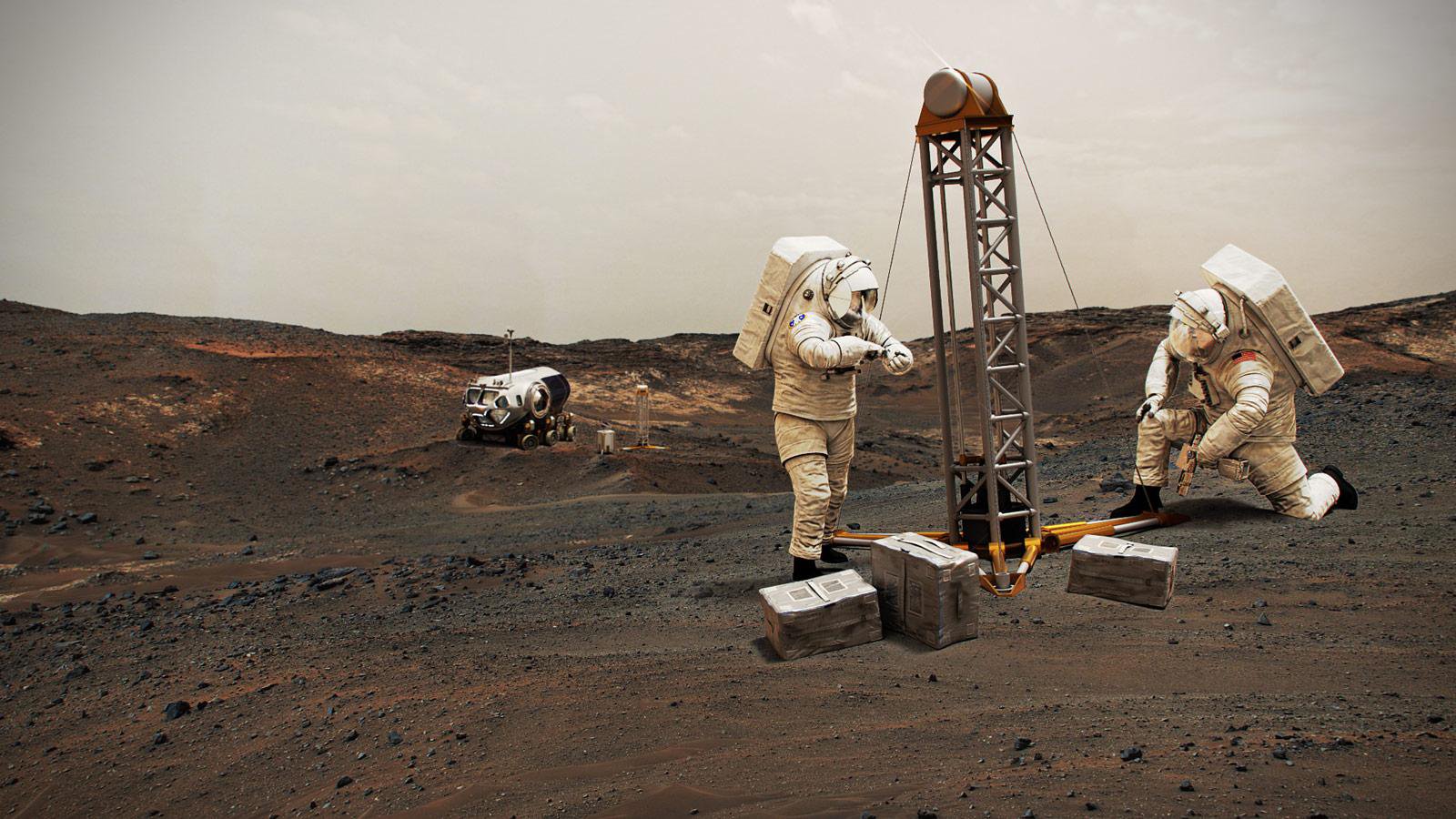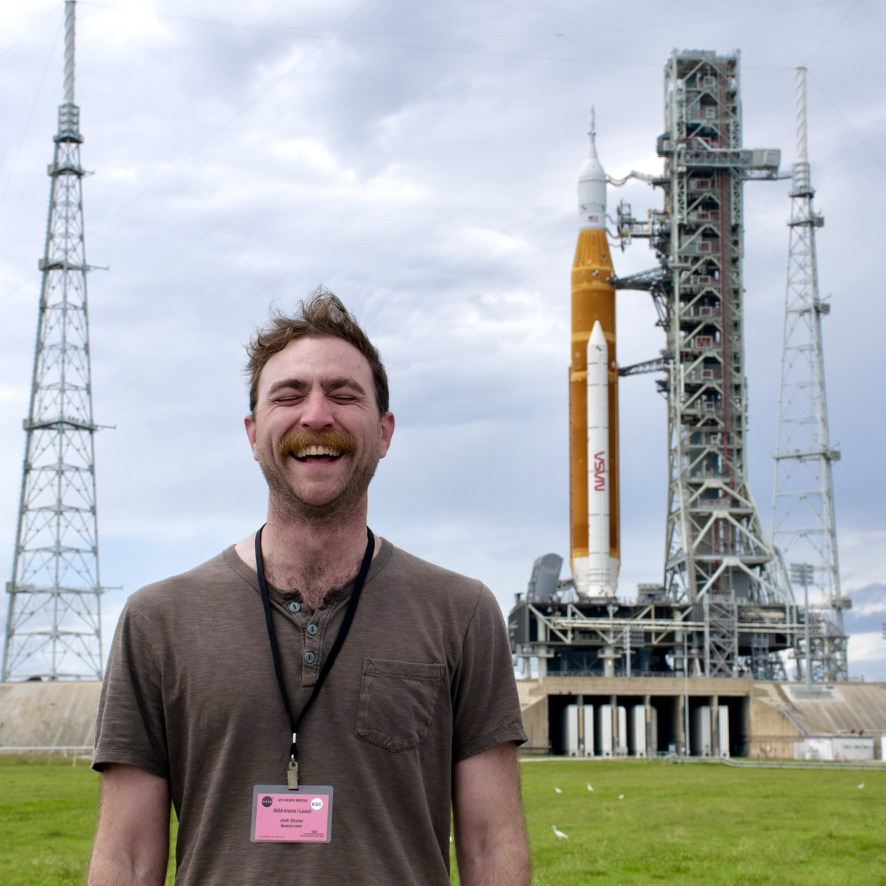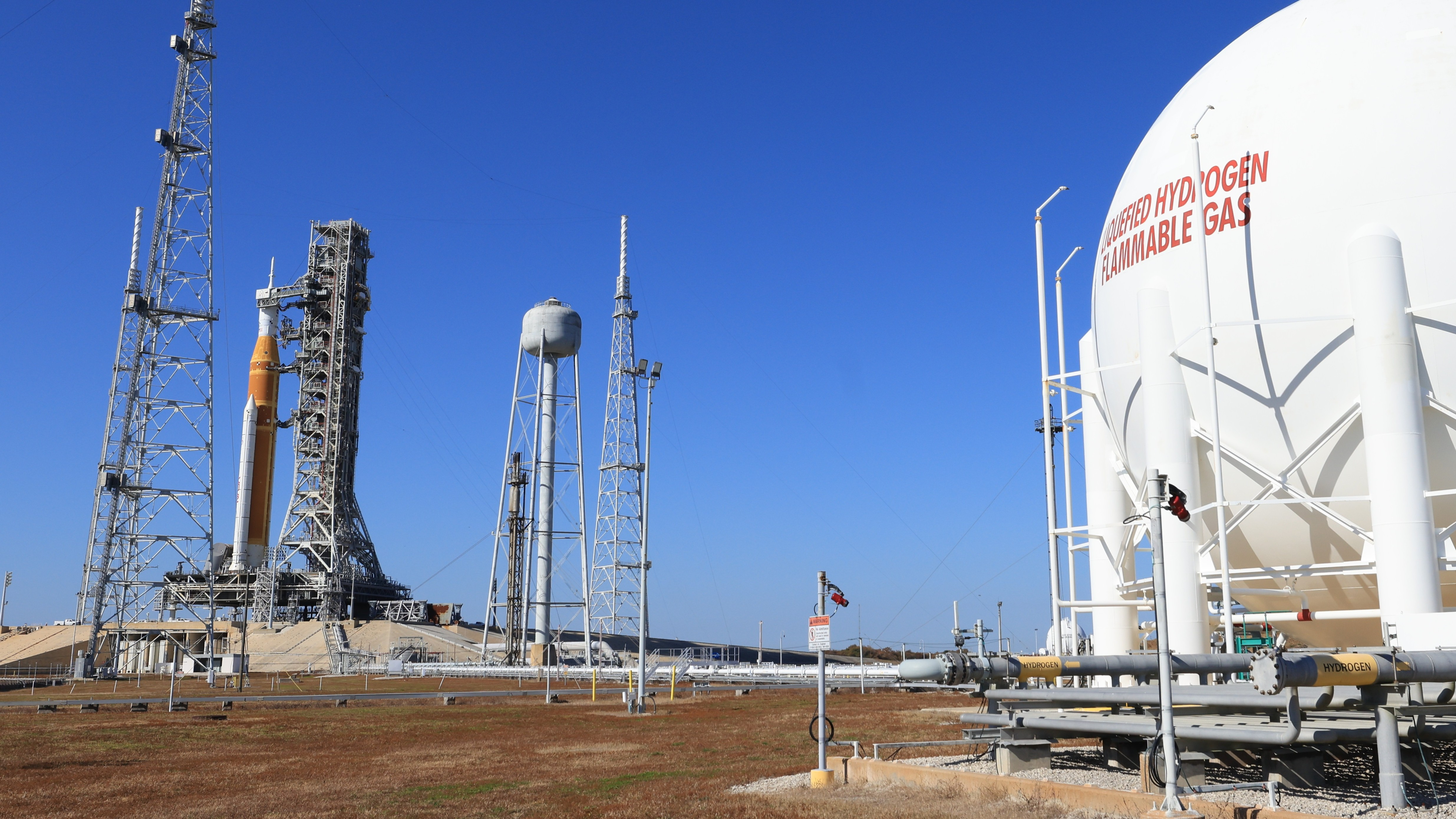Not all alphas: Mars crews should be a mix of personality types, study suggests
"It gives us a glimpse of the human challenges astronauts could face on these long journeys into deep space.”

Breaking space news, the latest updates on rocket launches, skywatching events and more!
You are now subscribed
Your newsletter sign-up was successful
Want to add more newsletters?

Delivered daily
Daily Newsletter
Breaking space news, the latest updates on rocket launches, skywatching events and more!

Once a month
Watch This Space
Sign up to our monthly entertainment newsletter to keep up with all our coverage of the latest sci-fi and space movies, tv shows, games and books.

Once a week
Night Sky This Week
Discover this week's must-see night sky events, moon phases, and stunning astrophotos. Sign up for our skywatching newsletter and explore the universe with us!

Twice a month
Strange New Words
Space.com's Sci-Fi Reader's Club. Read a sci-fi short story every month and join a virtual community of fellow science fiction fans!
The right mix of astronaut personalities could make or break future missions to Mars.
A new study from researchers at the Stevens Institute of Technology in New Jersey used advanced computer simulations to test how mixtures of different dominant personality traits within crews affect stress, health and teamwork during long-term space missions. The results, published Oct. 8 in the journal PLOS One, indicate that crews with a wider range of personalities perform better under pressure, possibly informing how NASA selects and trains its astronauts for Mars.
According to the study, "team diversity in personality traits may contribute to greater resilience under extended isolation and operational load." To simulate a crew on a 500-day Mars mission using only computers, authors Iser Pena and Hao Chen incorporated psychological theories into agent-based modeling (ABM), which can create decision-making virtual avatars capable of interacting with one another.
A crewed mission to Mars would likely last at least three years, due to orbital launch and return windows and time spent at the Red Planet. In that time, astronauts will face constant confined spaces, limited privacy and strenuous workload, all in an environment where they must maintain a professional demeanor, clear communication and cool heads with their teammates.
“This new approach lets us explore how different astronaut personalities and team roles might affect a crew’s stress and performance, and it gives us a glimpse of the human challenges astronauts could face on these long journeys into deep space," the authors said.
NASA and other organizations run isolation studies and analog missions to better understand these types of interactions and to derive prediction methods for crew member compatibility. This new study offers an additional tool to that research, and argues that psychological diversity should be an operational factor just as important for missions as life-support hardware reliability.
"There is a timely and critical need to develop predictive tools capable of assessing and optimizing team composition, psychological resilience and operational effectiveness under realistic, Mars-like conditions," the study says.
Breaking space news, the latest updates on rocket launches, skywatching events and more!
Pena and Chen's ABM method tracked the interactions between individual "agents" with distinct traits and roles inside a shared environment, which allowed them to measure larger-scale effects on the team as a whole. The simulation incorporated five major personality traits — openness, conscientiousness, neuroticism, extraversion and agreeableness — and distributed them across various astronaut roles, like medic, pilot and engineer.
Crews with mixed personality types consistently maintained better balance and cooperation than homogenous teams, "indicating that personality and skill diversity may support team resilience under sustained operational demands," with lower stress levels found in combinations of highly conscientious individuals and those with low neuroticism, the study authors wrote.
The researchers note that their model does carry some limitations, such as stationary agent traits, which fail to take into account how individuals might adapt or mature over time. Pena and Chen hope that refining how relationships form, evolve and degrade due to stress will improve future crew composition analysis.

Josh Dinner is the Staff Writer for Spaceflight at Space.com. He is a writer and photographer with a passion for science and space exploration, and has been working the space beat since 2016. Josh has covered the evolution of NASA's commercial spaceflight partnerships and crewed missions from the Space Coast, as well as NASA science missions and more. He also enjoys building 1:144-scale model rockets and human-flown spacecraft. Find some of Josh's launch photography on Instagram and his website, and follow him on X, where he mostly posts in haiku.
You must confirm your public display name before commenting
Please logout and then login again, you will then be prompted to enter your display name.
